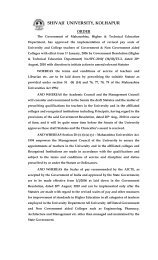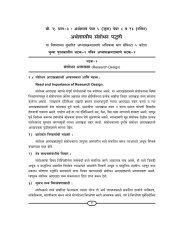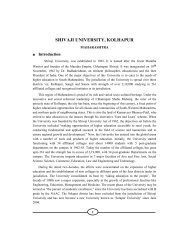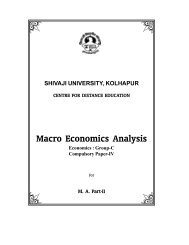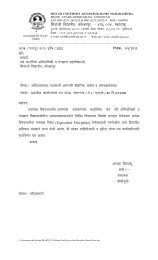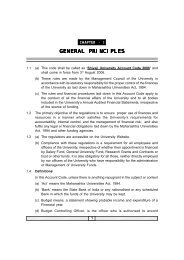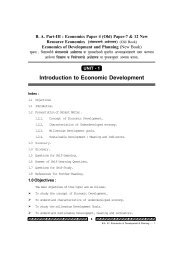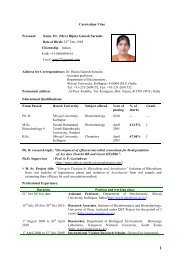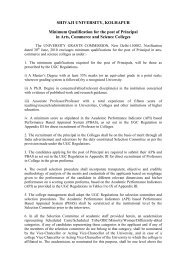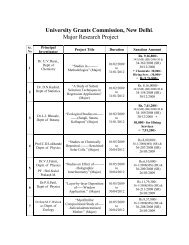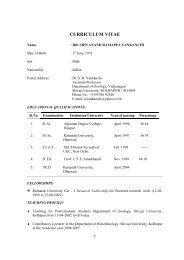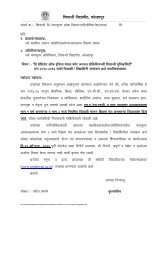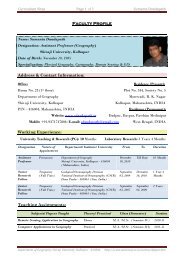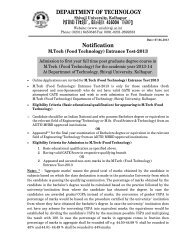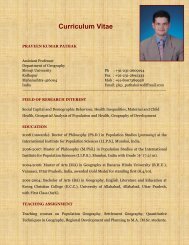M.Sc. Chemistry Syllabus Revised Implemented ... - Shivaji University
M.Sc. Chemistry Syllabus Revised Implemented ... - Shivaji University
M.Sc. Chemistry Syllabus Revised Implemented ... - Shivaji University
You also want an ePaper? Increase the reach of your titles
YUMPU automatically turns print PDFs into web optimized ePapers that Google loves.
Rinehart and Winston Inc )<br />
M. <strong>Sc</strong>. Part – I (Semester - II)<br />
CH – 201: Inorganic <strong>Chemistry</strong> Practical Course<br />
(Practical no. 211 and 212)<br />
1. Ore analysis – ‘2’ ores<br />
2. Alloy analysis – ‘2’ (Two and three components)<br />
3. Inorganic Preparations and purity – ‘4’<br />
References:<br />
1) A text book of Quantitative Inorganic Analysis – A. I. Vogel<br />
2) Experimental Inorganic <strong>Chemistry</strong> - W. G. Palmer<br />
3) The analysis of minerals and ores of the rarer elements – W. R. <strong>Sc</strong>hoeller<br />
and A. R. Powell, Charles, Griffin and Company Limited<br />
SEM-II<br />
ORGANIC CHEMISTRY PRACTICLES<br />
1.Qualitative analysis:<br />
Separation and identification of the two component mixtures using<br />
Chemical and physical methods.<br />
2.Thin layer chromatography (TLC).<br />
3.Column chromatography and steam distillation techniques.<br />
4.Determination of percentage of Keto-enol form.<br />
5.Estimation of pesticides<br />
(Any other suitable experiments may be added).<br />
REFERENCE BOOKS<br />
1.A text book of practical organic chemistry- A. I. Vogel.<br />
2.Practical organic chemistry- Mann and Saunders.<br />
3.A handbook of quantitative and qualitative analysis- H. T. Clarke.<br />
4.Organic Synthesis Collective Volumes by Blat.<br />
M.<strong>Sc</strong> I – Semester II<br />
Physical <strong>Chemistry</strong> Practicals<br />
Students are expected to perform 15-20 experiments of three and half-hours<br />
duration.<br />
Experiments are to be set up in the following techniques.<br />
1 Potentiometery:<br />
Determination formal redox potential of system, determination of binary mixture<br />
of halides.<br />
2. Conductometry :<br />
Titration of ternary acid mixture of acids, Verification of Onsagar Equation for<br />
1:1 type strong electrolyte.<br />
3 Refractometry :<br />
Determination of atomic refractions of H, C and Cl atoms.<br />
4 Cryoscopy:<br />
29



